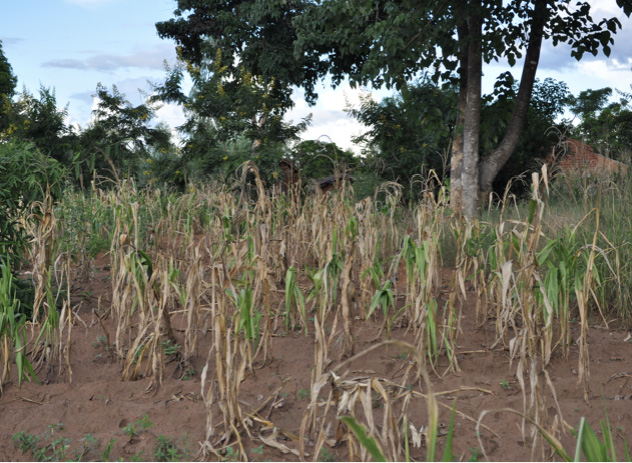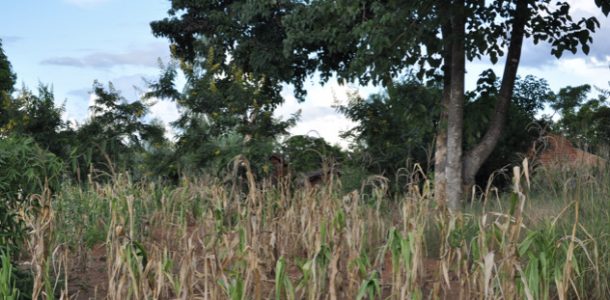In the context of extreme weather events, dry spells are increasingly affecting agricultural production. The effects are more pronounced in a country like Malawi that is heavily dependent on rain fed agriculture. In addition to meteorological inputs like amount of precipitation, site specific characteristics such as soil properties affect vulnerability of an area to dry spells, as they determine water availability in the root zone of plants. Therefore, this study maps and identifies areas vulnerable to dry spells in relation to soil properties and linking to agricultural production. The results of the study are expected to provide information that will help reduce vulnerability to dry spells by identifying areas suitable for crop production, and thus contributing to food security. Furthermore, the results will help policy makers, private and public institutions in formulating site-specific adaptation strategies and prioritizing adaptation investments to the most vulnerable dry spell hotspots.
Team Members
Ellasy Gulule Chimimba (University of Malawi)
Cosmo Ngongondo (University of Southampton)
Chengxiu LI (University of Southampton)
Henry Hunga (University of Malawi)
Daniela Anghileria(University of Southampton)
Francis Oloo (Technical University of Kenya)
Tendai Polite Chibarabada (Waternet)
Levis Eneya (University of Malawi)
Maurice Monjerezi (University of Malawi)


